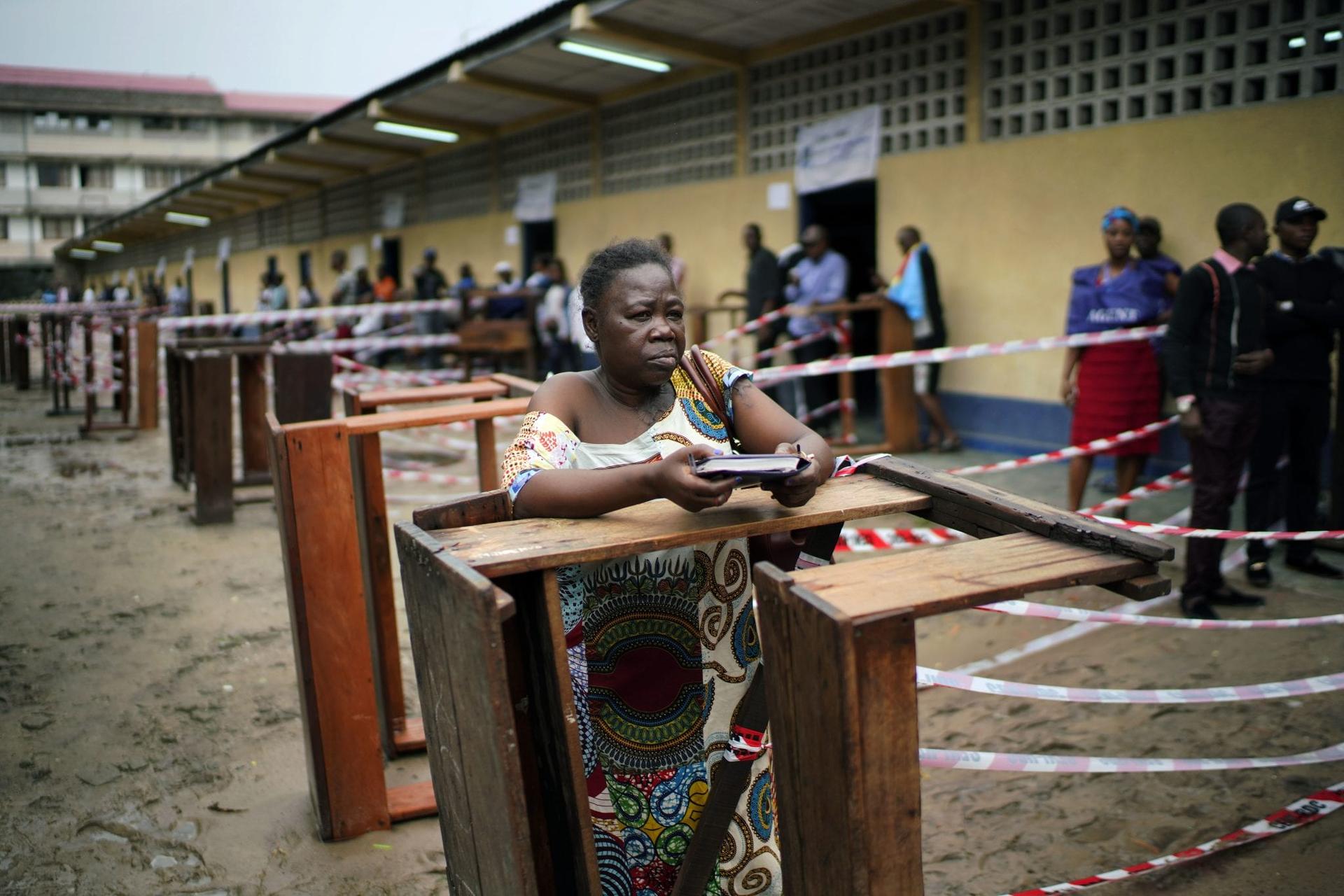KINSHASA, Congo — Pope Francis has prayed for those suffering from violence and Ebola in Congo, and is urging peaceful elections.
Francis asked faithful in St. Peter’s Square on Sunday to join him in prayers and expressed hope that “all work to maintain a peaceful climate that permits peaceful and regular conducting of the elections.”
The election is Congo’s first chance to have a peaceful, democratic transfer of power since independence in 1960 as longtime President Joseph Kabila steps aside.
Unrest was feared after a last-minute decision to bar an estimated 1 million people from voting because of a deadly Ebola virus outbreak in the east. The decision was widely criticized as threatening the credibility of the election.
Scores of polling centers have not yet started operating in Congo hours after voting in the presidential election began.
As hundreds of people wait at the Saint Raphael center in the Limete neighborhood of Kinshasa, an official says the list of voters still has not arrived. Christian Mwangalay says “We are waiting to know who is supposed to vote where.” At least 6,000 people are expected to vote there.
Congo’s electoral commission chief tells The Associated Press that 49 voting centers are still waiting for voters lists. Corneille Nangaa says that “we have printed lists for 29 of them and the rest are being printed right now.” He faces an angry, shouting crowd.
Another polling official worries that voting machines will run out of battery. Congo is using the machines for the first time, and already troubles and confusion are being reported around the vast country.
Frustration is growing. “We came to vote and there is nothing. May (President Joseph) Kabila go to hell,” voter Elvis Bolungu says. Some people are simply walking away.
In Beni, one of the eastern cities where the voting was postponed until March, several hundred young people staged a protest vote, casting paper ballots. Many sang in Swahili, “Voting is our right and nobody can stop us.”
Official voting will not be held in Beni and Butembo today. The winner of the presidential election will be declared and inaugurated before voters in those cities can cast their ballots. To protest this situation, many Beni residents cast ballots in a mock voting procedure.
“We believe our voices should be counted just like voters in other provinces. I came to vote because it is my right and not a favor, “said Jacob Salamu, 24. He and others washed their hands before voting, as a protection against Ebola, which is prevalent in eastern Congo. “We do not have Ebola. Kabila is worse than Ebola,” said Salamu.
Opposition candidate Martin Fayulu voted in central Kinshasa at the Gombe Institute, the same polling station where outgoing President Joseph Kabila and ruling party candidate Emmanuel Shadary voted earlier.
“It is the departure ticket for Kabila” said Fayulu as he cast his ballot. “Today, we are writing the end of Kabila, the end of misery for Congolese people. Congo will stop being the laughing stock of the world and we think the results will be in accordance with what the Congolese people want.”
Amid rainy weather, Congo’s outgoing President Joseph Kabila and his chosen successor, Emmanuel Ramazani Shadary, have voted in the country’s presidential election.
After voting, Kabila urged others to vote: “My message today to my compatriots is to come and vote for their candidates and brave the rain.”
Shadary called for “peace and calm,” adding “I am very confident in victory because the Congolese people will trust me, I campaigned all over the country.”
Polls opened and people began voting in Congo for the long-delayed presidential election, amid worries over the exclusion of three cities from the voting.
“We declare the polling station open” said Francoise Ntadianga Tshiela, head of the the Gombe Institute voting center in the heart of Kinshasa, surrounded by embassies and government offices.
Some unrest is feared in the election after a last-minute decision to bar an estimated 1 million people from voting because of a deadly Ebola virus outbreak in the east. The decision has been widely criticized as threatening the credibility of the election.
Two main opposition candidates, Martin Fayulu and Felix Tshisekedi, are challenging President Joseph Kabila’s preferred successor, the European Union-sanctioned former interior minister Emmanuel Ramazani Shadary.
AP writers Saleh Mwanimilongo and Mathilde Boussion contributed to this from Kinshasa, Congo.












